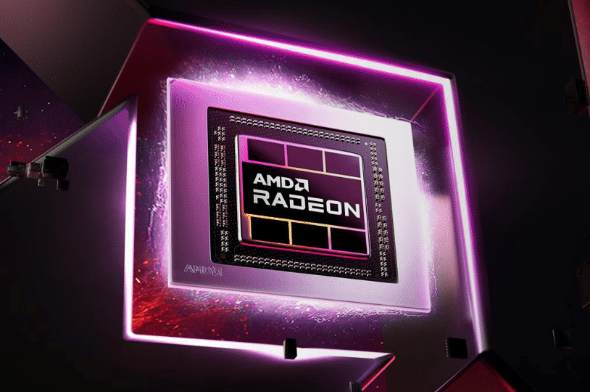Connection to DriversCloud Create a DriversCloud.com account Reset your DriversCloud.com password Account migration
Cooling problem and/or drivers problem, AMD does not start the year at best
Two unrelated problems, but which must be solved quickly to avoid spoiling the party.
If the CES 2023 in Las Vegas was the occasion for some nice announcements from AMD, the party seems to be over for the American company. One after the other, two controversies quickly overshadowed two very interesting announcements concerning, on the one hand, the revival of the desktop processor range and, on the other, the upcoming release of CPUs based on the Zen 4 microarchitecture for laptops. Unfortunately for AMD, as we have just said, two incidents generated what we are now accustomed to calling a bad buzz for AMD.
First, there were problems with the latest generation of AMD graphics cards, the very recent Radeon RX 7900. However, it should be noted from the outset that only models of the most powerful RX 7900 launched by AMD, the Radeon RX 7900XTX, are affected by this concern. And again, it should be added that only models directly designed and manufactured by AMD - the famous MbA or Made by AMD - are concerned, as well as some third-party cards that use the reference design imagined by AMD. But what is the problem?
While the Radeon RX 7900XTX has only been available since mid-December, some users quickly complained about temperature problems. In fact, their card starts to heat up far beyond the limits indicated by AMD: we are talking about temperatures reaching 110°C. Such figures are obviously undesirable when the GPU is, for example, only guaranteed to operate at 95°C. However, beyond the danger for the hardware, it is above all a problem of use that is underlined by the users: in order to preserve its components, the cards logically lower their operating frequencies and the performance is obviously affected.
Very quickly, PC hardware specialists got involved and the German overclocker Der8auer logically incriminated the cooling system of the card, more specifically, the steam chamber used by AMD. Through two videos presented on his YouTube channel, Der8auer first performed various tests and then simply set out to open the steam chamber. Another well-known specialist, Igor Wallossek, joined his colleague and was a little more precise in indicating that a lack of liquid in the steam chamber would be the cause of all this.
It was only at the very beginning of the year that AMD decided to react through a press release published by Videocardz. It states " working to determine the cause of performance problems on Radeon RX 7900XTX cards. Our observations suggest that the cause is the cooling solution in the reference design, but that this only affects a limited number of cards sold. We are working to resolve the issue on these cards. Customers who experience this problem should contact aMD support ". In other words, if you are affected by the problem on a Radeon RX 7900XTX, AMD will surely exchange it for you... but, a word of advice, don't delay contacting the company.
A problem never comes alone, in the wake of this cooling concern, AMD is cited by several users of the Reddit platform who would have encountered problems with their Radeon RX 6800 or RX 6900 card, so the generation just before. KrisFix, a graphics card repair specialist, has echoed the concern and says that about 60 of these graphics cards have been returned recently with, in 48 cases, the same defect that made them impossible to repair.
A defect that, for many users, would be related to the deployment of the 22.11.2 driver by Microsoft, a driver certified WHQL and therefore, normally safe. In fact, this driver is the only real common point - besides the fact that the cards are Radeon RX 6800 / RX 6900 of course - found between these 48 cases. KrisFix points out that it doesn't seem to be due to a particular workload or the intensity of the use that was made of the graphics card. Moreover, the driver in question is the last one deployed by AMD, in early December, which has since focused on Radeon RX 7900 GPUs.
AMD has not yet commented on this situation, but the site Videocardz refers to photos published by KrisFix. These pictures show the GPU of a card affected by the problem: the chip is physically damaged in its die, an alteration that has nothing to do with a driver problem. For the time being, and even if the controversy has been growing recently, AMD seems to be completely blameless.





